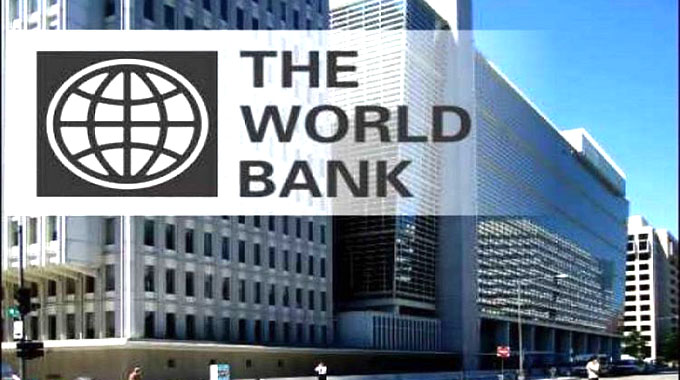Logistics sector drives growth

Trade and Technology with Sitshengisiwe Ndlovu
The role of the logistics industry has increasingly gone beyond connecting markets, coordinating and forwarding movement of cargo across borders.
Research by the World Bank has summarised logistics as a network of services that encompasses the physical movement of goods, trade across international borders and commerce within domestic borders.
The logistics industry has become a major player in economic growth and economic integration.
The performance of the logistic industry is closely linked with economic outcome of growth, trade expansion and exports diversification. It is with this view that research continues to explore ways of how spatial planning and greening of supply chains should be achieved within the logistics industry to enhance its performance.
As the world went into lockdown due to the Covid-19 pandemic, the logistics industry continued to operate at the height of the pandemic. The advent of the pandemic brought to the fore how crucial the logistic services are and the need to build back better logistics supply chains that will be sustainable and resilient to future disruptions and shocks.
The Logistics Performance Index of 2018 (LPI 2018) reveals lacklustre performance of the industry in sub–Saharan Africa with the exception of South Africa. South Africa has a score of 83 percent within the upper middle income countries, while Zimbabwe scored 51,8 percent low income countries.
Landlocked countries in Central Africa score lowly due to these geographical positions becoming low performers in the Logistics Performance Index.
Trade facilitation measures such as the single window concept and one-stop border posts have contributed to the reduction of delays on container movement although the Central and East Africa countries continue to face severe trade facilitation challenges.
Container dwell time in Central and East Africa has been significantly reduced, dropping to an average of 10 days according to the World Bank Report.
These are important performance indicators within the logistics industry that influence the decisions of investors.
Delays at the borders have been unfairly largely attributed to customs administration and research by the World Bank Report of 2010 revealed that customs administrations clearance time account for a third and the other two thirds is consumed by other border agencies.
What the research reveals is that an array of other government institutions is responsible for the delays that are associated with the movement of cargo through border posts. Trade facilitation efforts should therefore have been directed to the whole supply chain within the logistics industry.
Modernisation of processes should not be restricted to customs processes only but must incorporate other border agencies including other government and private institutions that facilitate border operations.
The Logistic Performance Index Report data by the World Bank reveals a huge performance gap between low income countries and high income countries.
The data reveals that logistics is more than simple national income and development. Logistics invites policymakers’ serious consideration in decisions that will attract investments based on the predictability of trade.
While time and cost effective trade remain important to investors, their confidence is bolstered more by the reliability and predictability of the supply chain obtaining in the logistics industry. Certainty and predictability become distinguishing hall marks of the logistics industry.
Globally efficiency within the logistics services is differentiated by the operational environment. Research has revealed a relationship between the quality of service offered and the infrastructure in which logistics firms operate.
Score ratings tend to be high for operations that support international trade such as air and maritime transport even when bottlenecks exist.
Rail roads have low ratings everywhere. This could be an explanation why low income countries score poorly on road freight including warehousing effectively becoming low performers.
Differentiated freight costs within the logistics industry result in market distortions and inefficiencies compounded by regulations.
The regulations on the movement of trucks impact negatively on the quality of transport and usage of the trucks. World Bank Research reveals that in Africa there are corridors where a truck is allowed to travel up to 2 000km within a month, while in the US the same truck is allowed to do 20 000km within a month.
The resultant for Africa is excessive fixed costs that have a downstream ripple effect.
The government becomes the enabler within the supply chain through rehabilitation of roads, reduction of trade red tape, reduced road blocks, harmonisation of laws and regulations that affect trade, adoption of single windows and block chain technology among other many interventions that promote legal trade.
Finally, the World Bank research identified the following different categories in the logistics industry;
Logistics Friendly — these are high performers,
Consistent logistics performers — associated with emerging economies,
Partial logistics performers — associated with low-to middle income countries and the
Logistics unfriendly — associated with severely logistic constraints as found in least developed countries.
It is up to each country to choose a category that it would like to be identified with.
In view of the foregoing efficient logistics performance is one of the key components to achieve economic growth in Africa. In the context of the AfCFTA and the Covid-19 trade corridors need to remain open and resilient.
It is important for the logistics industry to work closely with policy makers to achieve logistics friendly status that will deliver on the inclusive socio-economic growth.
Sitshengisiwe Ndlovu president of OWITZIMBABWE: MBA/UNCTAD: Trade and Gender Linkages/ IAC Dip/Cert: Trade in Services and SDGs: Robert Schuman Center of Advanced Studies/IDEPCert: Making the African Continental Free Trade Agreement Work. She writes in her personal capacity. For more on trade matters visit her blog on website: www.owitzimbabwe.org











Comments